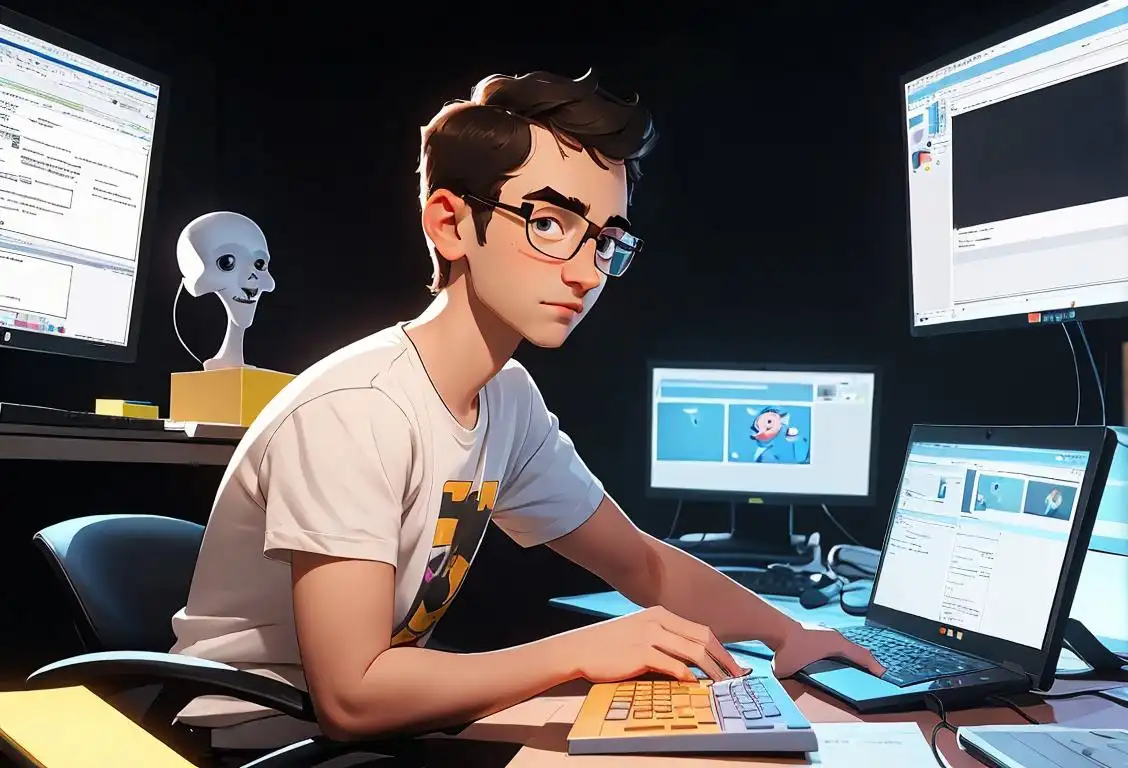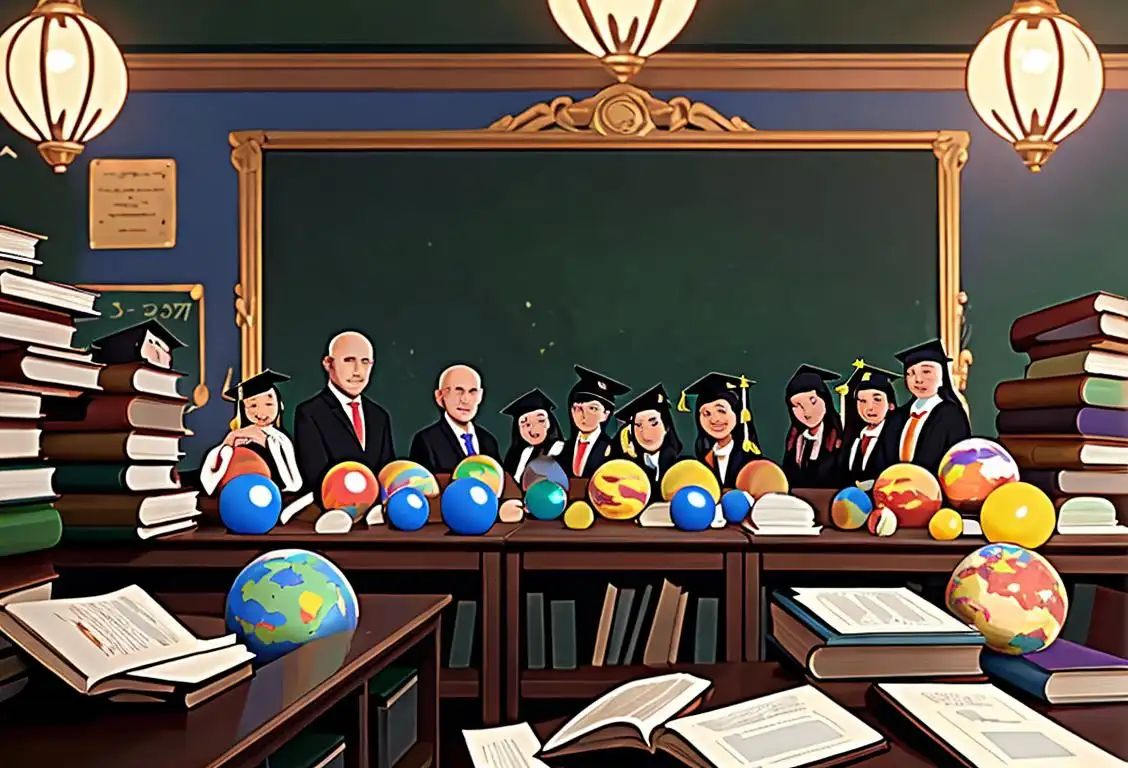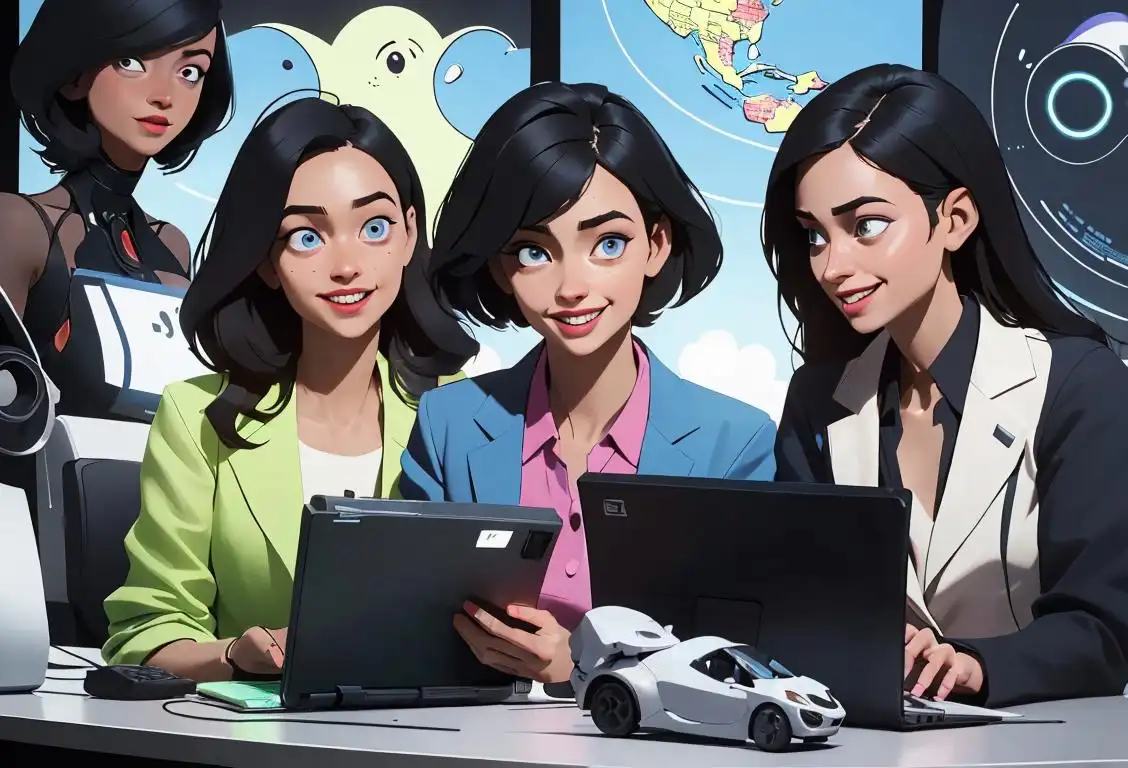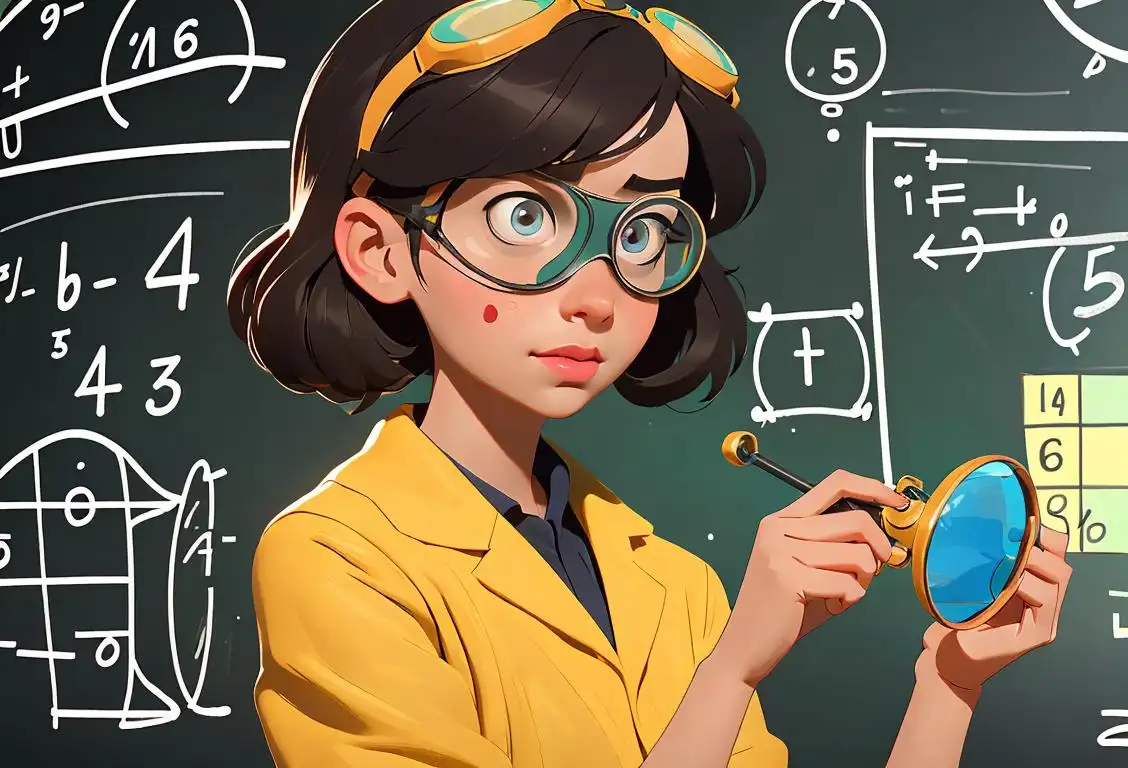National Programmers Day

Hey there, tech-savvy friends! Get ready to celebrate National Programmers Day with a coding spree that's sure to make your binary heart skip a beat.
When is Programmers Day?
It's national programmers day on the 13th September.
History of National Programmers Day
On this day, we take a moment to honor and appreciate the brilliant minds behind our favorite software, apps, and websites - the programmers! Whether you're a coding guru or just a curious enthusiast, National Programmers Day is the perfect opportunity to delve into the fascinating world of programming and discover its origins.
While the exact origins of this national day are a bit hazy, it is believed to have been established as a way to recognize the hard work and dedication of programmers around the world. Programming is no easy feat, and these talented individuals deserve a special day to be celebrated!
Celebrating National Programmers Day
So, how can you celebrate National Programmers Day? Well, there are plenty of ways to join in on the fun! You could learn a new coding language, try out a programming challenge, or even participate in coding competitions.
If you're not quite ready to dive deep into coding, don't worry! You can still show your appreciation for programmers by sending them a heartfelt thank you message or treating them to their favorite caffeinated beverage. After all, coffee and coding go hand in hand!
Did You Know?
Did you know that the first computer programmer was a woman? Ada Lovelace, an English mathematician, is often credited as the first computer programmer for her work on Charles Babbage's Analytical Engine in the 1800s. Talk about breaking gender stereotypes in tech!
History behind the term 'Programmers'
1804
The birth of the loom
In 1804, a French textile factory owner named Joseph Marie Jacquard invented a mechanical device called the Jacquard loom. This loom used punched cards to control the weaving process, allowing for complex patterns to be woven quickly and accurately. The use of punched cards in this machine laid the foundation for the concept of programming, as it required the operator to provide instructions in a specific sequence to achieve the desired outcome.
1843
Ada Lovelace's visionary insights
In 1843, an English mathematician named Ada Lovelace made significant contributions to the field of programming. She translated an article on Charles Babbage's analytical engine, a proposed mechanical general-purpose computer, and added her own extensive notes. Lovelace recognized the potential of the machine to process not just numbers, but symbols as well. Her visionary insights included the concept of loops, stating that the machine could repeat a series of calculations based on specified conditions. As a result, Ada Lovelace is often regarded as the world's first programmer.
1936
Alan Turing's universal machine
In 1936, the British mathematician and computer scientist Alan Turing published a groundbreaking paper titled 'On Computable Numbers.' In this paper, he introduced the concept of a 'universal machine,' which later became known as the 'Turing machine.' The Turing machine was an abstract mathematical model capable of executing any algorithm or computational task. Although not a physical machine, it served as a theoretical framework for understanding computation and laid the groundwork for modern computer programming.
1945
The dawn of electronic programmable computers
In 1945, the first electronic general-purpose computer, known as the Electronic Numerical Integrator and Computer (ENIAC), was unveiled at the University of Pennsylvania. ENIAC marked a significant milestone in programming history as it was the first fully electronic machine designed to be reprogrammed to perform various tasks. The programming of ENIAC involved manually connecting cables and setting switches, limiting its flexibility and ease of use. However, it paved the way for future advancements in programming languages and techniques.
1951
Grace Hopper's COBOL
In 1951, a remarkable woman named Grace Hopper created the first high-level programming language called COBOL (Common Business-Oriented Language). COBOL revolutionized programming by introducing English-like syntax, making it more accessible to non-technical users. This language played a crucial role in the development of business applications and helped bridge the gap between programmers and end-users. Grace Hopper's contributions to the field of programming led her to be often referred to as the 'Mother of COBOL' and a pioneer in programming language development.
1972
Dennis Ritchie's C language
In 1972, computer scientist Dennis Ritchie created the C programming language at Bell Labs. C quickly became one of the most influential programming languages, providing a powerful and efficient tool for software development. Its portability and simplicity made it widely adopted, and it served as the foundation for numerous other languages, including C++, Java, and Python. Today, the C language remains an essential part of programming education and professional software development.
1995
Marc Andreessen's Netscape Navigator
In 1995, Marc Andreessen and his team introduced Netscape Navigator, the world's first widely used web browser. This event marked a significant milestone in the history of programming as it enabled the widespread adoption of the internet and web-based applications. With the advent of web development, a new breed of programmers emerged, specializing in creating interactive and dynamic websites. The growing demand for web-based software led to the rise of various programming languages and frameworks geared toward web development.
2007
The birth of the iPhone and app development
In 2007, Apple unveiled the first iPhone, revolutionizing the mobile industry and paving the way for app development. The introduction of the App Store in 2008 created a new ecosystem for software developers, allowing them to create and distribute applications for iPhones and later for other mobile platforms. The app economy boomed, leading to an increased demand for mobile app programmers and sparking innovation in mobile technology.
Did you know?
Did you know that the first computer programmer was a woman? Ada Lovelace, an English mathematician, is often credited as the first computer programmer for her work on Charles Babbage's Analytical Engine in the 1800s. Talk about breaking gender stereotypes in tech!Tagged
fun appreciation education technologyFirst identified
13th September 2015Most mentioned on
13th September 2020Total mentions
60Other days
Programmers Day
Space Centre Day
Teacher Day
It Professionals Day
Grid Expects Day
Teacher Appreciation Day
System Administrator Appreciation Day
Stem Day
School Librarian Day
School Bus Driver Appreciation Day








